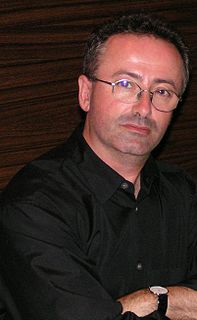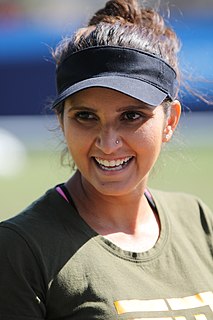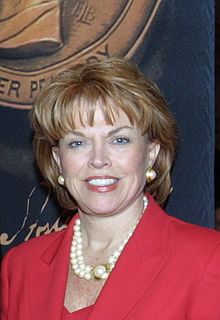A Quote by Helen Mirren
I think every woman in our culture is a feminist. They may refuse to articulate it, but if you were to take any woman back 40 years and say, 'Is this a world you want to live in?' They would say, 'No.'
Related Quotes
I think I was a feminist before the word was invented. By the time I came across feminist books by American or European writers, I realised that there was an articulate way or a language to express all these feelings that I had had for years and years and so I became a raging feminist as a young woman.
I would say that the race of Hillary Clinton was very important to this country, because it showed that a woman could win the state, that a woman could raise money. I think that every woman is sitting a little taller, not only in our own country, but I think women around the world watch what's happening in the United States.
You are wrong when you say there is no power in being a woman. When I think of my mother and the women in my tribe, and the hidden women in the harem, I know there are many types of power in this world...I found power in accepting the truth of who I am. It may not be a truth that others can accept, but I cannot live any other way. How would it be to live a lie every minute of your life? I don't think I could do it.
A beautiful woman in our culture, and I would like to say, you know, this was different in 1962, but it still exists today - I know a lot of these women -treats different in a different way; meaning that if you're a beautiful woman, you're incredibly powerful within our culture. The world operates differently for you. Then, at a moment in time, and it has nothing to do with you, it's like the carpet is just ripped out from under you, and the way that you've operated in the world no longer works.
When I used to say I wanted to play at Wimbledon, they used to laugh in my face and say, 'What are you talking about, you're from Hyderabad, and you're supposed to... cook.' That's one of the notions that people have in this side of the world - it is our 'culture', within quotes, you know, to say what a woman can or cannot do.
In my opinion, the most important thing as a woman leader-and I learned this early through a whole bunch of great women who were in my life (and men, I have to say)-is that if you have a position of leadership and power and you don't use it in a different way, then you're wasting it. So when people used to say to me when I was the first woman president of PBS, "Well, you know, does that mean that as a woman you're going to be a different kind of president?" And I would say, "Well, I hope so!"
To say anything about women and men without marking oneself as either feminist or anti-feminist, male-basher or apologist for men seems as impossible for a woman as trying to get dressed in the morning without inviting interpretations of her character. Sitting at the conference table musing on these matters, I felt sad to think that we women didn't have the freedom to be unmarked that the men sitting next to us had. Some days you just want to get dressed and go about your business. But if you're a woman, you can't, because there is no unmarked woman.
Even before I went to the UN, I often would want to say something in a meeting - only woman at the table - and I'd think, 'OK well, I don't think I'll say that. It may sound stupid.' And then some man says it, and everybody thinks it's completely brilliant, and you are so mad at yourself for not saying something.
If you are born a female and live as one, you can't deny your connection to feminism. I think if you are a female, you are a feminist. As far as my work goes, I don't want it to be interpreted solely from a feminist perspective, of course, but for a woman to have no interest in feminism or say that it doesn't concern her is self-denial. I know that sexism still exists within various societies and systems, whether blatantly or subtly. We are, however, much better off than previous generations.
Every woman who has had experience with sexual violence of any kind has not just pain, and not just hurt, but has knowledge. Knowledge of male supremacy. Knowledge of what it is. Knowledge of what it feels like. And can begin to think strategically about how to stop it. We are living under a reign of terror. Now what I want to say is that I want us to stop accepting that that's normal. And the only way that we can stop accepting that that's normal is if we refuse to have amnesia everyday of our lives.




































